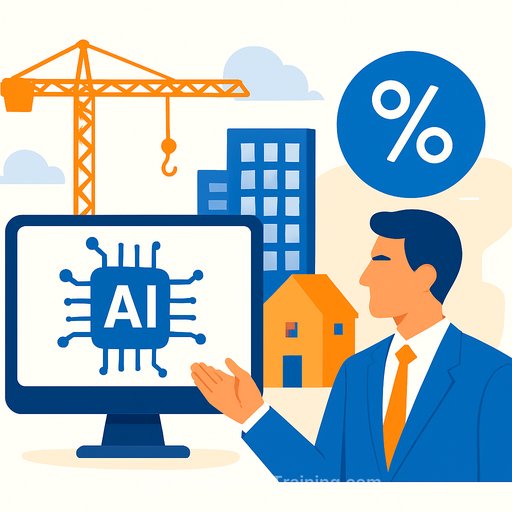AI Is Not a Bubble: What Managers Can Take From State Street's Outlook
At the Future Investment Initiative in Riyadh, Yie-Hsin Hung, president and CEO of State Street Investment Management, pushed back on the "AI bubble" narrative. Her stance is simple: today's leading tech companies generate strong cash flow and deliver real returns-very different from the dot-com era.
She also pointed to infrastructure and real estate as areas with room to run, given where rates and demand are headed. For managers, that mix-AI quality, essential infrastructure, and selective property exposure-sets a clear playbook for the next 12-24 months.
AI: Focus on Cash Flow, Not Hype
Hung put it plainly: "If you compare today's big tech, compared to say the era of the internet bubble, you have companies today that are generating enormous amount of cash flow and able to deliver tremendous returns and I think the promise is there."
Translation for operators and allocators: prioritize business models with unit economics that hold up under stress. The market is rewarding AI that drives productivity and revenue, not just headlines.
- What to screen for: free cash flow, pricing discipline, clear product-market fit, and customer retention.
- Where AI shows up on P&L: lower support costs, faster delivery cycles, higher conversion, and better workload throughput.
- Red flags: growth dependent on cheap capital, vague path to margin, or "AI" used as a branding layer.
Beyond AI: Infrastructure and Real Estate
Hung highlighted infrastructure and real estate as areas set to deliver returns. That tracks with rising demand for data centers, grid upgrades, logistics networks, and select housing segments.
- Infrastructure: data center capacity, transmission upgrades, and energy systems tied to compute demand and resiliency.
- Real estate: industrial/logistics, data center REITs, and supply-constrained residential. Watch refinancing schedules and vacancy trends.
Rates: A Constructive Path From the Fed
On the US rate path, Hung said: "We're calling for 75 basis points of cuts which I think is pretty much the view for the full year, so another 25 after this one. We'd like to see another 75 basis points next year because we're more worried about the labour market but if in fact the Fed doesn't cut it would suggest the economy is pretty strong so on balance pretty optimistic."
For planning: a mild easing cycle helps funding costs, supports real assets, and keeps risk-on windows open-while a pause would signal an economy that's holding up. Track the calendar and dot plot closely.
Federal Reserve meeting calendar
What Managers Should Do Now
- Rebalance toward quality AI exposure: tilt to cash-generative leaders and suppliers (compute, networking, software with clear ROI).
- Lean into infrastructure themes: prioritize assets linked to data center growth, grid upgrades, and mission-critical services.
- Be selective in real estate: favor logistics and data infrastructure; stress-test debt maturities and lease rollovers.
- Tighten capital planning: line up dry powder for dislocations; extend maturities where terms are attractive.
- Upskill teams on AI execution: focus on workflow automation, analytics, and procurement use cases that hit near-term KPIs. Curated options: AI courses by job.
- Run scenarios: model both a gentle cutting cycle and a hold scenario; adjust hiring, pricing, and opex triggers accordingly.
Bottom Line
The AI story today is built on cash flow and utility, not speculation. Pair that with infrastructure demand and selective real estate, and you have a practical framework for growth with risk discipline. Rate cuts would help-but the plan works even if the economy stays firm.
Your membership also unlocks:






